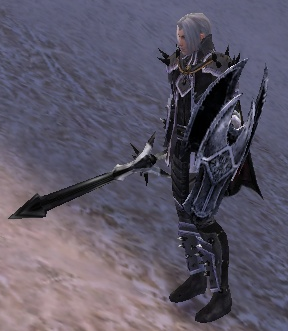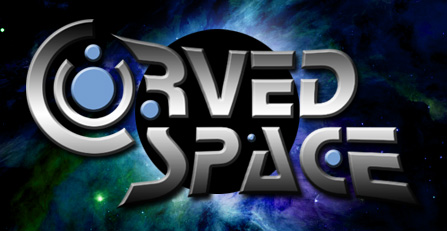Page 1 of 1
Earth Origins
#1

Posted 07 August 2004 - 01:58 AM
Most people believe Earth is just a planet, but this is not so. Some theorize that Earth is not one, but two planets. A long long time ago, two planets collided with eachother. There cores fused together creating earth's core, and a ton of debris went of and formed the moon. This would account for the moon's composition, age, and other suff, as well as an explination as to why earth is the densest planet we know of.
Also, I've become very skeptical as to what determines a planet. Ganymede (I wonder if I spelled that right...), one of Jupiter's moons, is larger than pluto and mercury, maybe venus or mars, too. Luna is even bigger than Pluto, but still they are just moons. Why???
Also, I've become very skeptical as to what determines a planet. Ganymede (I wonder if I spelled that right...), one of Jupiter's moons, is larger than pluto and mercury, maybe venus or mars, too. Luna is even bigger than Pluto, but still they are just moons. Why???
Neraphym Archaeon

GWAMM

GWAMM
#5

Posted 07 August 2004 - 05:56 AM
isnt pluto considered a planet? 
thats pretty strange.. ive got no idea then...
EDIT: i was interesting by this, so i typed 'define: planet' into google.
this is what it came up with... some are stupid, some are strange...
Google
thats pretty strange.. ive got no idea then...
EDIT: i was interesting by this, so i typed 'define: planet' into google.
this is what it came up with... some are stupid, some are strange...
This post has been edited by bigrat2: 07 August 2004 - 05:59 AM
Empty sig is empty.
#6

Posted 10 August 2004 - 05:08 AM
They are considered moons because they are satelites that follow one path unlike a normal satelite they dont just sit there they actually move against the plans alingment as well they also say there might be a 10th planet in the next few millions years because there is a point beyond pluto that has been taken thigns like spaces dust and asteroid and just taking them as one thing scientists dont
know though
know though

#7

Posted 10 August 2004 - 05:28 AM
| QUOTE (Styledragon1 @ Aug 9 2004, 11:08 PM) |
| They are considered moons because they are satelites that follow one path unlike a normal satelite they dont just sit there they actually move against the plans alingment as well they also say there might be a 10th planet in the next few millions years because there is a point beyond pluto that has been taken thigns like spaces dust and asteroid and just taking them as one thing scientists dont know though |
yeah finally a planet with a koolio name they said that they already found it and called it planet X hehe but they are still doing studys and stuff

#10

Posted 12 August 2004 - 12:01 AM
No one really knows where the Earth's moon came from, but in my opinion the two-planet idea is a little farfetched (I've heard it before described in other ways). It's possible, it's arguably the best explanation we have right now, but I believe that they are still arguing over how two bodies could form like this from such an impact. In order for it to happen it would have to be in the very early stages, probably the later stage of the Sun's nebula. It's possible, but if described as two planets then many other planets in the solar system can probably be described in a similar way (the planets most likely formed from collecting bodies and particles in the original nebula).
As for Ganymede, it would be considered a planet if it were orbiting the Sun. The same applies to Titan (of Saturn) which is also larger than Mercury and Pluto. No moons in our solar system are larger than any other planets however (just Mercury and Pluto when compared to Titan and Ganymede). Ganymede is the largest, however Titan is probably the most "planet-like" - it has a thicker atmosphere than the Earth even.
As for Pluto, I think that its classification depends on the definition of a planet. Unfortunately "planet" (A.K.A. "Wanderer" in ancient Greece, I believe, because the planets did not move in relation to the stars) does not really have a specific definition with numbers or geometry. With its current definition it can be considered a planet, however it behaves more like a comet due to its irregular orbit and possible composition. It can also be considered a Kuiper Belt Object, but how they compare to planets is not really defined either (just that they exist in the Kuiper Belt). There are other similar objects/planetoids such as Sedna, I believe that that is what Obi was referring to. Pluto can probably be classified in a similar manner.
Also, "Planet X" is not a real planet. It was originally created as an explanation for irregularities in the orbit of Uranus (almost positive that it was Uranus that caused it). They believed that the irregularities were caused by the gravitational influence of another planet farther out. When they found Neptune they believed that it was "Planet X" (I'm saying this off my head, I could be wrong but I believe that this is what I was told), but when they made calculations they saw that it did not account for Uranus' orbit. Then they found Pluto and found that it was too small to be "Planet X". Eventually, I believe that Einstein's theories explained Uranus' situation. Therefore Planet X was not necessary for things to keep spinning. Now it is used as a term for any unknown planet and has referred to objects such as Sedna which are still being found. I don't believe that they are still searching for the real "Planet X", but there is probably someone who thinks we missed something (which is increasingly unlikely).
Who knows though, in astrophysics common beliefs have a bad habit of flipping overnight.
As for Ganymede, it would be considered a planet if it were orbiting the Sun. The same applies to Titan (of Saturn) which is also larger than Mercury and Pluto. No moons in our solar system are larger than any other planets however (just Mercury and Pluto when compared to Titan and Ganymede). Ganymede is the largest, however Titan is probably the most "planet-like" - it has a thicker atmosphere than the Earth even.
As for Pluto, I think that its classification depends on the definition of a planet. Unfortunately "planet" (A.K.A. "Wanderer" in ancient Greece, I believe, because the planets did not move in relation to the stars) does not really have a specific definition with numbers or geometry. With its current definition it can be considered a planet, however it behaves more like a comet due to its irregular orbit and possible composition. It can also be considered a Kuiper Belt Object, but how they compare to planets is not really defined either (just that they exist in the Kuiper Belt). There are other similar objects/planetoids such as Sedna, I believe that that is what Obi was referring to. Pluto can probably be classified in a similar manner.
Also, "Planet X" is not a real planet. It was originally created as an explanation for irregularities in the orbit of Uranus (almost positive that it was Uranus that caused it). They believed that the irregularities were caused by the gravitational influence of another planet farther out. When they found Neptune they believed that it was "Planet X" (I'm saying this off my head, I could be wrong but I believe that this is what I was told), but when they made calculations they saw that it did not account for Uranus' orbit. Then they found Pluto and found that it was too small to be "Planet X". Eventually, I believe that Einstein's theories explained Uranus' situation. Therefore Planet X was not necessary for things to keep spinning. Now it is used as a term for any unknown planet and has referred to objects such as Sedna which are still being found. I don't believe that they are still searching for the real "Planet X", but there is probably someone who thinks we missed something (which is increasingly unlikely).
Who knows though, in astrophysics common beliefs have a bad habit of flipping overnight.

#11

Posted 14 August 2004 - 05:07 PM
i just realised that whatever you post about in this section of the forums your gonna get a mini-novel reply from Cspace. but yea, they did believe neptune was the reason for the distortions, then they calculated that it was all still out of balance. it could juse be that someone forgot to carry the 1, who knows? well, probably Cspace in a few weeks.

#13

Posted 07 July 2005 - 05:39 AM
QUOTE(Alpha Weapon)
Also, I've become very skeptical as to what determines a planet. Ganymede (I wonder if I spelled that right...), one of Jupiter's moons, is larger than pluto and mercury, maybe venus or mars, too. Luna is even bigger than Pluto, but still they are just moons. Why???
I bet someone has already answered this, but I will answer it anyway. It is what the object orbits that matters, not its size. Ganymede and Luna orbit planets, while Pluto and the rest orbit the a star, the Sun.
QUOTE(Alpha Weapon)
Most people believe Earth is just a planet, but this is not so. Some theorize that Earth is not one, but two planets. A long long time ago, two planets collided with eachother. There cores fused together creating earth's core, and a ton of debris went of and formed the moon. This would account for the moon's composition, age, and other suff, as well as an explination as to why earth is the densest planet we know of.
QUOTE(Newscientist Magazine)
AS SPACE rocks go, asteroid 2002 AA29 looks fairly ordinary. In snapshots taken with powerful telescopes it shows up as a tiny black speck, a pipsqueak compared with the enormous asteroid that wiped out the dinosaurs 65 million years ago. Heck, it isn't even on a life-threatening collision course with Earth. Yet to Richard Gott and Edward Belbruno, 2002 AA29 is the most important rock in the solar system. They believe it shares a history with the Mars-sized planet that crashed into the Earth 4.5 billion years ago to make the moon.
Where this world came from has always been a mystery. All the signs point to an unthinkable place, but now Gott and Belbruno think their space rock might help to solve the puzzle. It could even prove the heavens are full of cosy corners where life might flourish.
Back in the early days of the solar system, the Earth wasn't really the Earth. It was a protoearth, a smaller world growing rapidly as it gobbled up rubble that had condensed from the dust cloud swirling round the young sun. But protoearth had a rival, another planet about a tenth of its mass, spinning around the sun in a dangerously similar orbit.
One day the two collided. The impact melted Earth's crust and obliterated the smaller planet, which some astronomers call Theia.
Theia's iron core sank into the Earth, while its molten rock layers splashed out into space. Once in orbit, the splattered pieces were pulled together by gravity to form a protomoon. Originally whirling only 22,000 kilometres from Earth, the moon gradually picked up more rubble and was pushed out to its present position. And the rest, as they say, is history.
Where this world came from has always been a mystery. All the signs point to an unthinkable place, but now Gott and Belbruno think their space rock might help to solve the puzzle. It could even prove the heavens are full of cosy corners where life might flourish.
Back in the early days of the solar system, the Earth wasn't really the Earth. It was a protoearth, a smaller world growing rapidly as it gobbled up rubble that had condensed from the dust cloud swirling round the young sun. But protoearth had a rival, another planet about a tenth of its mass, spinning around the sun in a dangerously similar orbit.
One day the two collided. The impact melted Earth's crust and obliterated the smaller planet, which some astronomers call Theia.
Theia's iron core sank into the Earth, while its molten rock layers splashed out into space. Once in orbit, the splattered pieces were pulled together by gravity to form a protomoon. Originally whirling only 22,000 kilometres from Earth, the moon gradually picked up more rubble and was pushed out to its present position. And the rest, as they say, is history.
I hope that answered your question.
I have trademarked the symbol: '™'. You fail at display names.

^ Thanks to Nazy for the... thingy ^
Things which you should look at:
SKoA - http://skoa.cspacezone.com/ , if you have any Age of Empires games.
The DS Garden Festival Minigame - Link , whether you play DStorm or not.
The Most Mysterious SSSS - Link For people who don't care about...things.
Like LEGO? Play Blockland!

^ Thanks to Nazy for the... thingy ^
Things which you should look at:
SKoA - http://skoa.cspacezone.com/ , if you have any Age of Empires games.
The DS Garden Festival Minigame - Link , whether you play DStorm or not.
The Most Mysterious SSSS - Link For people who don't care about...things.
Like LEGO? Play Blockland!
I may be an Arbiter, but I'll always be a SeeDy little man.™™
Page 1 of 1
 Sign In
Sign In Register
Register Help
Help
 This topic is locked
This topic is locked


 MultiQuote
MultiQuote






